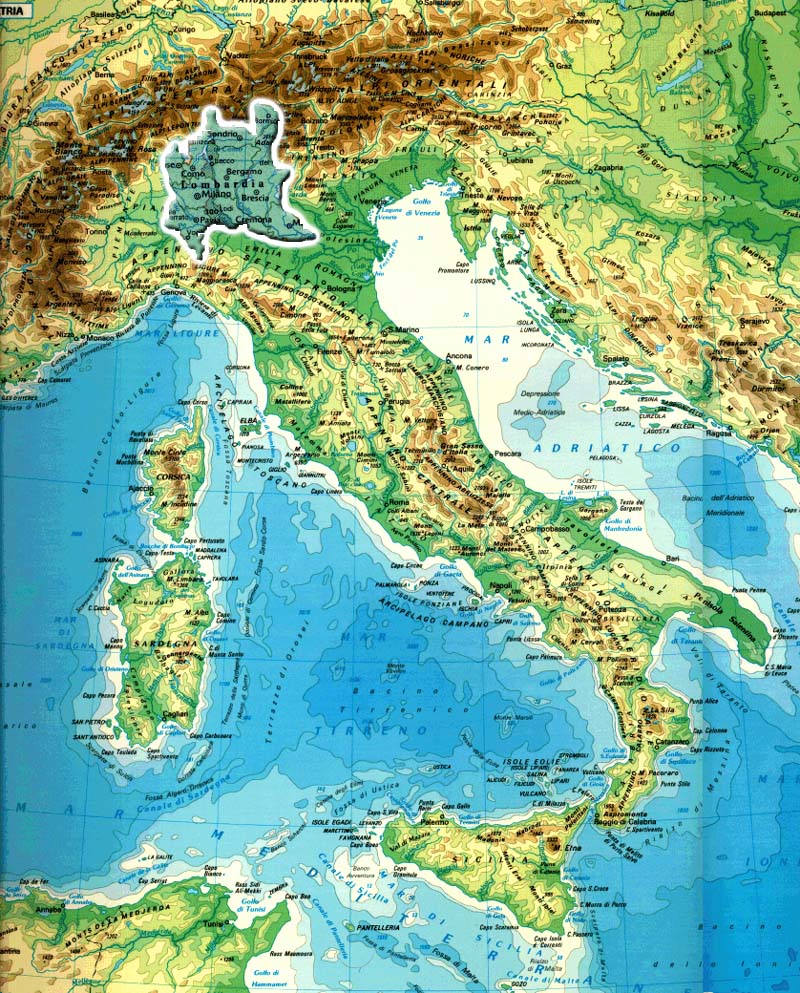
The Lombards were a Germanic tribe which conquered Northern Italy in the 6th century. I have heard that they were only about 30,000 strong, but I haven't been able to confirm this. They ruled for about 200 years. It was called the "Kingdom of the Lombards" or "Langbard." Their capitol was based in modern Pavia or what they called "Ticinium," and their base of operation was basically in modern "Lombardy."
I will go into the Lombards at some future time, but I wanted to just spend a little time discussing the confusion of all the names relating to the Lombards. Since they conquered almost all of Northern Italy, every Northern Italian is sort've a "Lombard" in a sense. Then there is Lombardy proper, and this is where the confusion mainly lies.
First of all, lets look at the ancient roving nation of the Lombards. They were called, depending what language you speak: the Lombards, the Longobardi, the Langobards, the Langobardi, the Langbärten, Longobards, the Langbards, and many others. They finally founded their kingdom called Langbard, the Kingdom of the Lombards, Langbardorum, and other similar names.
Second, this is all separate from the Italian region and former nation (1859) of Lombardia, or Lombardy in English. The plural name for modern Lombards is, depending on your language: Lombards, Lumbards, Lombardi, and others. To avoid all this confusion, for English speakers at least, we should refer to the ancients as "Lombards." We should refer to the nation they established as the "Kingdom of the Lombards." We should refer to the modern Italian region as "Lombardia," and to the people as "Lombardians."
"Lombard" should really refer to the ancient tribe only. I have no idea as to why Lombardia had to be modified to Lombardy. The German-speaking nation of Österreich was modified to "Austria" for English-speakers, Bayern was modified to "Bavaria" as well, so why is "Lombardia" so difficult to pronounce? Also, "Lombardians" is a good modern English name for the inhabitants.
The actual pronunciation for Lombardia is "Lom-bar-DEE-ah," but can be simply read straight though in English. It's sort've a forgivable mispronunciation. Even Brescia, pronounced "Breh-shee-ah," can be read in English as "Bressia," without insult, as there are many names that you and I can't pronounce properly, but a fair attempt is acceptable. There's a big difference between that, and a butchering of a word! lol
[Update 9-27-08: I wanted to add what our Lombardian friend Alessio Mezzenzana wrote to us: "In one of your blogs you write that the number of langobarden was 30,000. This is not correct.according to karin priester: the minimum nuber is 150.000 - 200.000. And wilfried menghin writes of 120.000 Langobards. You must have mistaken it with the horde number."]
[Update 12-5-08: "Estimates of the number range between about fifty thousand and two hundred thousand adult males, so we may be talking about a population of four or five hundred thousand people altogether." –Professor Thomas Noble, Chairperson, Department of History, University of Notre Dame, on the Lombard invasion population numbers in 568 A.D. during verbal interview for the History Channel's 'Barbarians II: The Lombards']

This is the first time I heard a figure of 30,000 as the size of the host of lombards. the accepted figure among historians is at least 80,000. Moreover there were many other people mingled in that host, such as the gepids, another german tribe which they had conquered. Also joining them in their expedition were a band of Saxons, neighbours of the lombards from the time that they inhabited shleswig-holstein, their original home. huns, bulgars, a turkic tribe, also joined them.
ReplyDeleteOnce on a message board, a woman who seemed to be trying to marginalize the Lombards, put the initial number at 30,000. Later, a man informed he that it's was at least 100,000. 80,000 to 100,000 seems more likely, as that would make them a formidable enough force which could accomplish what they did.
ReplyDeleteEarlier the Ostrogoths made their mark as well, although I have no idea of their numbers, or whether or not they remained in the countryside.
I am at an outside pc now. I will update this entry later, with the latest scholarly concensus which I have, regarding this question.
ReplyDeleteJoseph